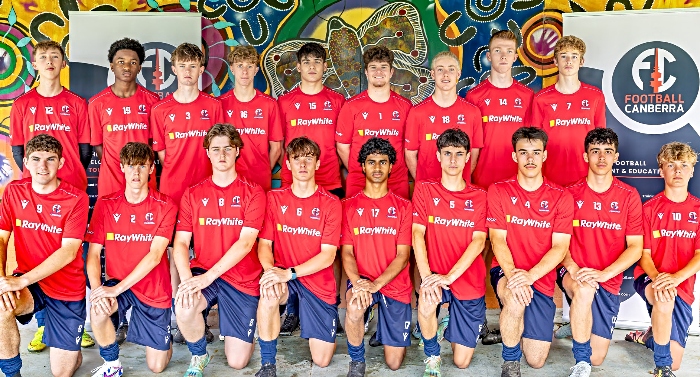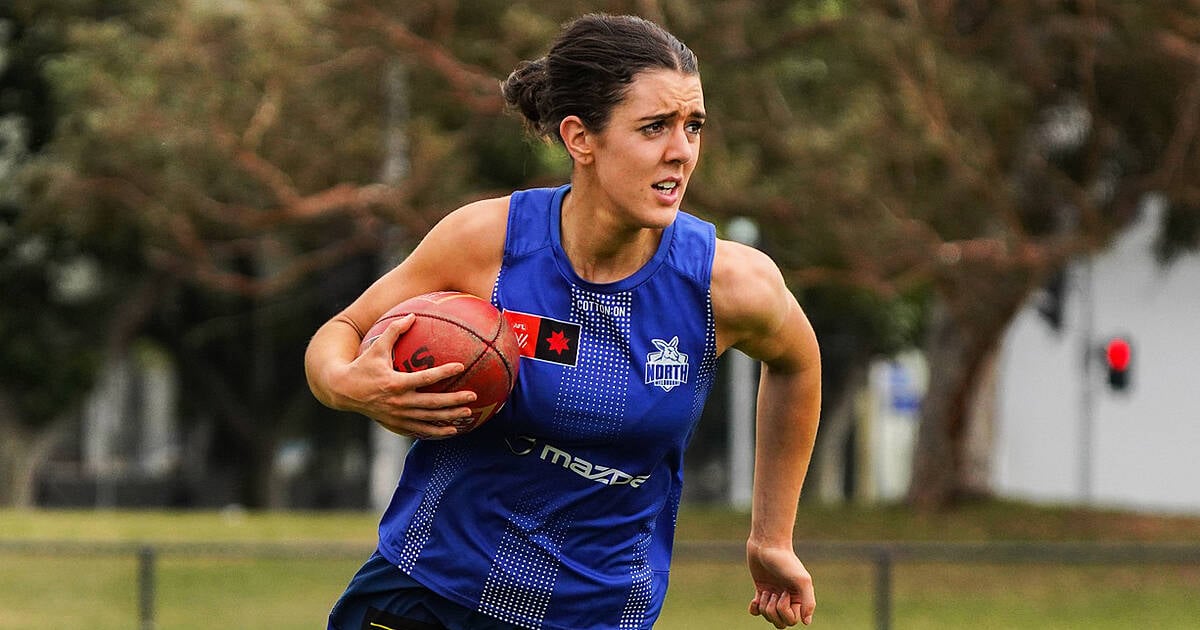Alice Springs council declares two-year ban on controversial bush footy finals, amid crime fears

- by Admin
- August 28, 2024
Community football finals will be barred from Alice Springs Town Council ovals for the next two years, amid claims the competition sparked a spike in crime at the weekend.
The Central Australian Football League community men’s grand final was held last weekend at Traeger Park, attracting hundreds to the town from surrounding remote communities.
Police say several “disturbances” broke out after the match with three people arrested for going armed in public.
Multiple businesses were also targeted in destructive break-and-enters over the weekend with dozens of car windows smashed across town.
There are urgent calls for better sporting facilities to be built in remote communities. (ABC Alice Springs: Xavier Martin)
Alice Springs Town Council supported a motion yesterday from Councillor Eli Melky to ban the use of the ovals for community footy semi and grand finals in 2025 and 2026.
“What we need to do is limit the impact on Alice Springs and the residents,” Mayor Matt Paterson said.
“I’ll be happy to be wrong in two years’ time. Right now we are just trying to look at what we can do.”
Alice Springs Mayor Matt Paterson says the council has long held concerns about the competition. (ABC News: Michael Franchi)
‘Not unique to Central Australia’
Northern Territory police said they had not drawn a “direct correlation” between the game and the weekend’s crime, adding the event was largely successful.
Regional and Remote Operations Assistant Commissioner Peter Kennon said police had been prepared in advance for “a large gathering of people, which may involve some conflict”.
“Sporting events throughout Australia unfortunately do have some people that decide to misbehave and assault each other,” he said.
“That’s not unique to Central Australia or Alice Springs.”
The CAFL community footy grand final was held in Alice Springs at the weekend. (ABC Alice Springs: Xavier Martin)
The mayor denied he was drawing a long bow in linking the two issues.
“We had already said to AFLNT before this motion was on the table that we don’t support the finals to be here, and it was just working through a process,” he said.
Concerns about competition
This is the latest chapter in an ongoing stoush between the council and AFLNT over the controversial remote footy competition.
The council banned the league’s 2023 season from its ovals early last year, citing concerns the competition led to an uptick in crime and social issues in the town.
But in May last year, council announced it would compromise by allowing four games of a shortened eight-round fixture to be played in Alice Springs, on alternating weeks to games out bush.
Police say they haven’t found a connection between the competition and increased crime. (ABC Alice Springs: Xavier Martin)
However, the mayor said the semifinal and grand final had been held consecutively in Alice Springs over the space of a fortnight.
“The concern, not just from council but from other organisations in town, is that the community comes in and will stay for those two weeks,” he said.
“So it’s actually still just as detrimental as playing it back-to-back.”
Labor MP Marion Scrymgour says there needs to be better sporting facilities in remote NT communities. (ABC News: Chris Murrkarany Fitzpatrick)
Calls for facilities out bush
Member for Lingiari Marion Scrymgour said the council’s decision highlighted the need for better sporting facilities in bush communities.
She said federal funding had been earmarked for remote sports hubs as part of the $250 million rescue package for Central Australia, but clarified all the money had not “flowed through yet”.
“If there is an impact in Alice Springs. We need to hurry up as a federal government with the money we’ve put on the table for infrastructure out bush,” she said.
The finals attract hundreds from surrounding remote communities to Alice Springs each year. (ABC Alice Springs: Charmayne Allison)
AFLNT said in a statement it was aware of the council motion.
The peak body said it would work with key stakeholders, including the council and the newly formed NT government, to determine the “future structure” of the competition.
“We understand concerns around public safety in Alice Springs,” the statement read.
“We also strongly believe that football has a positive impact on communities and needs to be part of the solution.”
The Latest News
-
December 26, 2024LIVE Boxing Day Test: Khawaja sent packing in shock wicket; Konstas knock a highlight
-
December 26, 2024Cricket: Australia’s Kostas gets better of India on debut
-
December 26, 2024Sam Konstas dazzles in Boxing Day Test debut. – Colitco
-
December 26, 2024Sam Konstas in epic response to MCG heroics amid wild Jasprit Bumrah detail
-
December 26, 2024Virat Kohli facing sanction after Sam Konstas fireworks rattle India in Boxing Day Test





